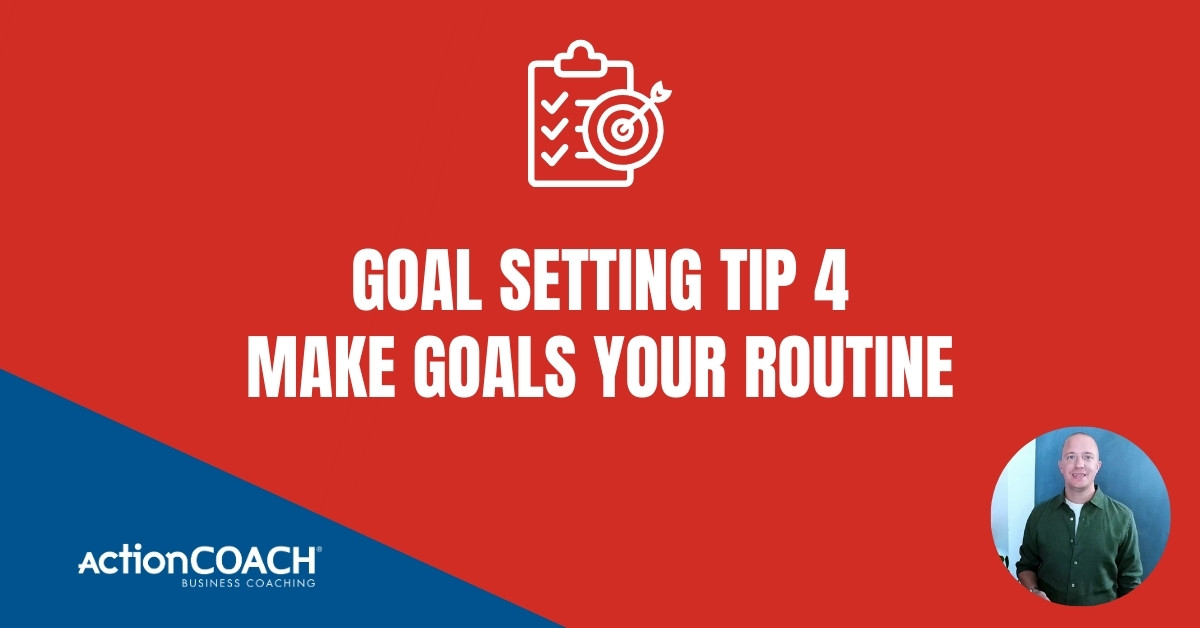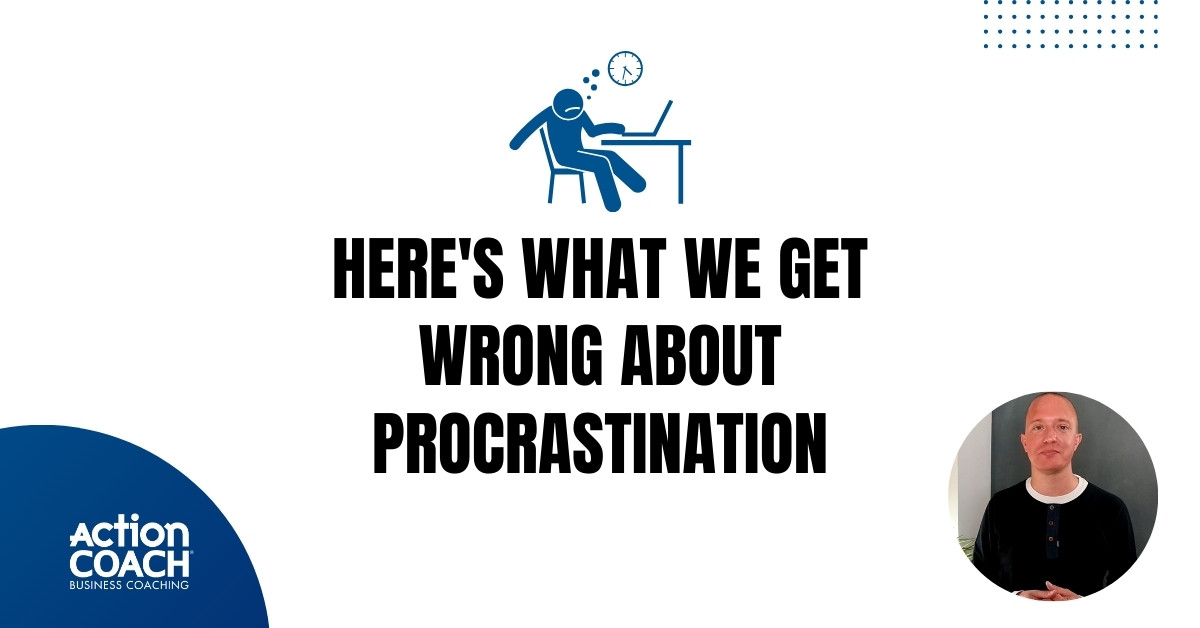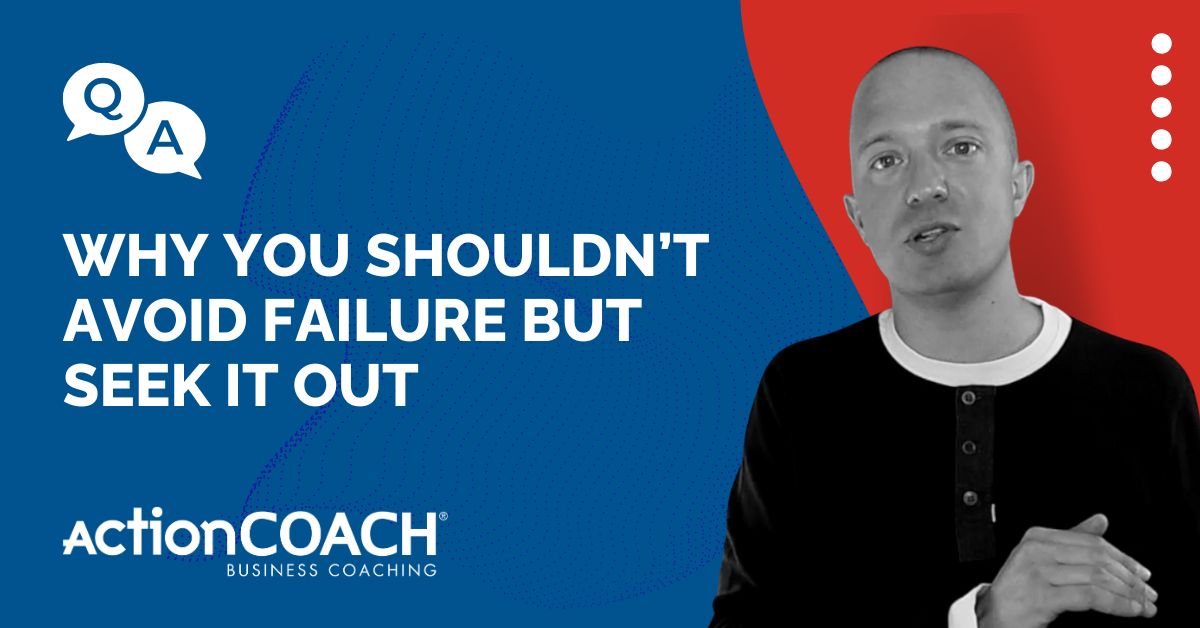This One Question Will Help Your Team Take More Ownership
One of the biggest frustrations managers face is that their team members don’t take enough ownership. You might find yourself wondering:
“Why don’t they just get on with it?”
“Why do they keep coming to me for answers?”
“Why don’t they care as much as I do?”
When employees constantly seek approval, escalate decisions, or hesitate to take initiative, it can be frustrating. The natural response is to step in, fix problems, and take control.
After all, it’s quicker and easier to do things yourself than to wait for someone else to figure it out. But in the long run, this approach only makes things worse.
Instead of fostering independence, you create a culture of dependency. Your team learns that whenever they face a challenge, they can simply pass it up to you.
They stop thinking for themselves. They stop problem-solving. And you – the manager or business owner become the bottleneck.
But what if, instead of taking over, you could empower your team to step up? There’s one simple but powerful question that can completely shift the way your team takes responsibility.
Let’s explore what that question is, why it works, and how you can use it to build a team that takes real ownership.
Video Transcription:
Here’s the one question you can ask to help your team take more ownership. As managers, we often have kind of expectations on our team that they should just take ownership. Why don’t they just get on with it, I know how to do this stuff. Why aren’t they fixing problems?
Why are they coming to me with questions? Why aren’t they just caring more, caring as much as I do?
And when those expectations aren’t met, it can get very frustrating. That frustration as managers, that frustration ends up playing out in just fixing the problems or getting annoyed doing their work for them, solving all the problems, having all the answers.
And it’s just self perpetuating they’re not going to take more ownership if that’s the environment that they find themselves in. So here’s one question you can ask to empower your team to take more ownership, and I got this from a client of mine who asked this of her, of her team.
The question that she posed to someone who’s stepping up in that business was what do you think I need to be able to give you more ownership over the team?
Now, here’s why that question is so powerful because rather than saying I want you to take ownership, so do this, do this, do this, here’s what you need to do, here are your KPI’s get on with it.
If you phrase it that way, if you have that kind of conversation, you’re removing the ownership from that person. Whereas if you ask them, right, this is your progression I want you to step up, I want you to be looking after the team, I want you to be taking more responsibility. How are you going to do it?
How do you think you’re going to do that, what do you think I need what do you think the next level up or the next level up need to be given confidence in if you are to be given that ownership and so suddenly the shift is not on you as the manager having all the answers and being one who owns everything, but the shift is down onto that person to say, right, well, you want ownership, step up and take it.
What do you think needs to happen? I always say the ownership needs to be given before it can be taken. We have those expectations of our team that they should just get on with it they should know how to do this they should know how to fix problems.
They should just take ownership they should just care. But it doesn’t always work out that way a far more effective way is to be really deliberate in offering that ownership to your team members some will take it and some won’t, but you’ve got to offer it to your team members and I promise you, you’re going to see far better results than just expecting them to care more.
Key Takeaways: How to Encourage More Ownership in Your Team
1. The Wrong Approach: Giving Orders Instead of Ownership
Many managers assume that the solution to low ownership is telling people to step up.
- “I need you to take more responsibility.”
- “You need to care more.”
- “Just take ownership of this.”
But simply telling someone to take ownership doesn’t work. Why? Because responsibility isn’t something people automatically take—it’s something that must first be given. If your approach is to hand out a list of tasks and expect employees to suddenly start acting like owners, you’ll be disappointed. Instead of feeling empowered, they may feel:
- Unclear on what “ownership” actually means
- Unsure of how much authority they really have
- Afraid of making mistakes or the wrong decisions
The result? They continue coming to you for answers. They wait for your approval before making decisions. And you stay stuck in a cycle of micromanagement.
2. The Right Approach: Asking the Right Question
Instead of demanding more ownership, shift the conversation by asking this question:
“What do you think I need to be able to give you more ownership?”
This simple question completely changes the dynamic.
Rather than assuming you have all the answers, it places the responsibility back on your employee. It forces them to think about what they need in order to step up.
- Do they need more clarity?
- Do they need additional skills or training?
- Do they need more confidence in their decisions?
This question isn’t just about delegation, it’s about building real leadership within your team.
3. Why This Works: It Creates a Mindset Shift
When you tell an employee to take more ownership, you’re still dictating the terms. But when you ask them what they need in order to take more ownership, you force them to actively engage in the process.
This shift leads to:
- Greater self-awareness – Employees start thinking about what’s holding them back.
- A sense of control – They feel like they have a say in their own development.
- A commitment to growth – By identifying their own needs, they become more invested in their success.
Suddenly, ownership isn’t something you’re forcing onto them—it’s something they’re actively working towards.
4. Ownership Must Be Given Before It Can Be Taken
One of the biggest misconceptions about leadership is that employees should naturally take ownership. But in reality, most people won’t step up unless they’re given the space to do so.
If you’ve been fixing every mistake, making every decision, and handling all the responsibility, you’ve unknowingly trained your team not to take ownership.
To change this, you need to:
- Deliberately hand over responsibility rather than just expecting them to take it.
- Set clear expectations for what success looks like.
- Support them through mistakes rather than immediately taking control back.
If someone isn’t taking ownership, don’t assume they don’t care, ask them what they need in order to feel confident stepping up.
5. The Results: A More Accountable and Engaged Team
When you shift ownership to your team, the impact is huge.
- Instead of waiting for direction, they start solving problems independently.
- Instead of seeking constant approval, they develop confidence in their decisions.
- Instead of feeling like employees waiting for orders, they feel like leaders contributing to the business.
And just as importantly, you free yourself from being the bottleneck.
Of course, not everyone will step up. Some employees will resist change. Some may not want extra responsibility. But that’s valuable information for you as a manager. It helps you see who is ready to grow—and who isn’t.
By offering ownership instead of demanding it, you empower the right people to rise to the challenge.
The Wrap-Up
If you’re frustrated with your team not taking ownership, the solution isn’t to micromanage or push harder, it’s to ask better questions. By shifting responsibility onto your employees in the right way, you create a team that is:
- More engaged
- More accountable
- More proactive
This isn’t just about getting things off your plate—it’s about building a stronger, more independent team.
If you want to develop a culture of ownership and accountability in your business but aren’t sure how to start, let’s chat. Book a free 45-minute coaching session with me, and I’ll help you build a strategy to get your team stepping up, thinking for themselves, and taking real ownership.



